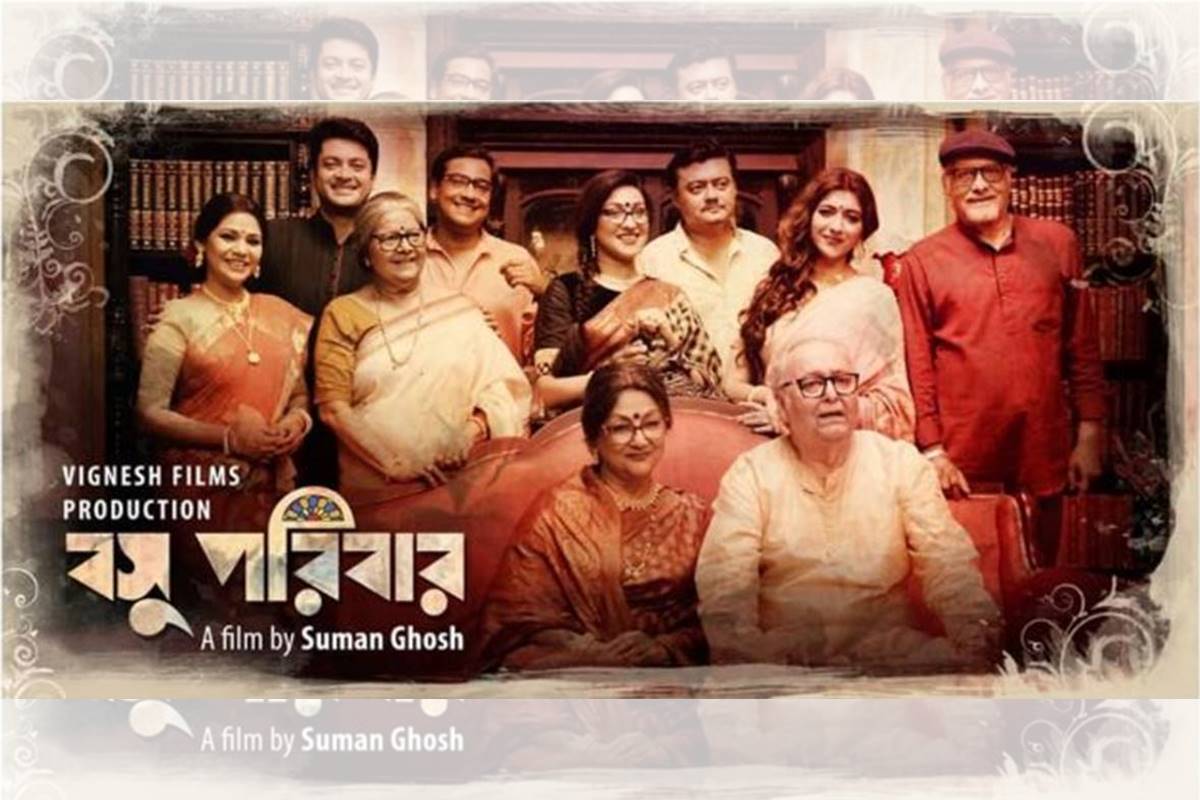Basu Paribar review: A joint family has become somewhat obsolete these days in most Bengali households. A family reunion therefore, is a remote possibility, especially, since joint families have become nuclear. Director Suman Ghosh manages to captivate the audience with his latest venture Basu Paribar which was premiered recently at the Priya Cinema, Kolkata. It ropes in, after a long sabbatical, legendary actors Soumitro Chatterjee and Aparna Sen in lead roles as heads of the family portrayed.
Ghosh who earlier created waves with his controversial film Nobel Chor deserves praise for effortlessly uniting a fairly large cast of known faces in the Tollywood film fraternity. As mentioned in the credits, the plot of the movie is inspired by James Joyce’s novella The Dead. Even though the original story is far removed from Bengal culturally, Ghosh’s script manages to perfectly fit it into a Bengali scenario. This was made possible by modifying the circumstances and characters involved. The way each member of the Basu family was introduced gripped the audience’s attention throughout. Chatterjee, with his engaging voice, introduces them in the first person narrative format.
The first half of Basu Poribar was slightly marred by overlapping dialogues leaving little scope for the audience to reflect. The family has united at their ancestral home in Midnapore to celebrate the occasion of the 50th anniversary of Sen and Chatterjee, the senior most members of the family.
Of course, the celebration has its darker and murkier side under wraps which unfurls gradually. However, the other family members involve the son and daughter-in-law (Jisshu Sengupta and Sreenanda Shankar) who are settled in the USA, their daughter (Rituparna Sengupta) who is Mumbai based. Mr Basu’s nephew and his mother (Saswata Chatterjee, Lily Chakraborty) arriving all the way from Haldia. Bringing up the rear are Senior Basu’s elder sister’s son and daughter-in law (Kaushik Sen, Sudipa Chakraborty) and a childhood friend (Paran Bandyopadhyay) who is extremely witty.
Amidst celebration and cutting the cake, audiences are enlightened about the couple’s conjugal life across five decades through their reminiscing. But as time wears on, abysses and fissures surfaces in the relationships of the family members and a time comes when they have to face some hard realities. What begins as a happy family reunion cracks up with some hitherto unknown, esoteric family secrets spilling the beans. All the hypocrisies of urban class conflicts become exposed reminding us of Shakespeare’s words “false face must hide what the false heart doth know”.
Over and above the ambiance of celebration is the formidable, haunting presence of an old man (Arun Mukherjee) hidden in the palatial surroundings. He resides in isolation on the other side of the dilapidated feudal mansion, and is the cause of much unease, intrigue, suspense and tension for the senior members. The film culminates on a note of soul-searching and self realisation and leaves a kind of message for the audience that despite human emotions and entanglements shackled to the past, life goes on. The storm sequence in the end symbolises the evolution of the soul towards purification.
Without doubt, as the guardians of Basu family, Chatterjee and Sen have nailed their roles with strong support from the other cast members. The family reunion and the mother-daughter affection reminds one of Ritupano Ghosh’s Utsav and Aparna Sen’s Paromitar Ek Din.
In the final analysis, Ghosh deserves praise as a director whose works provide ample food for thought. Basu Paribar will remain with one even after leaving the theatres.











